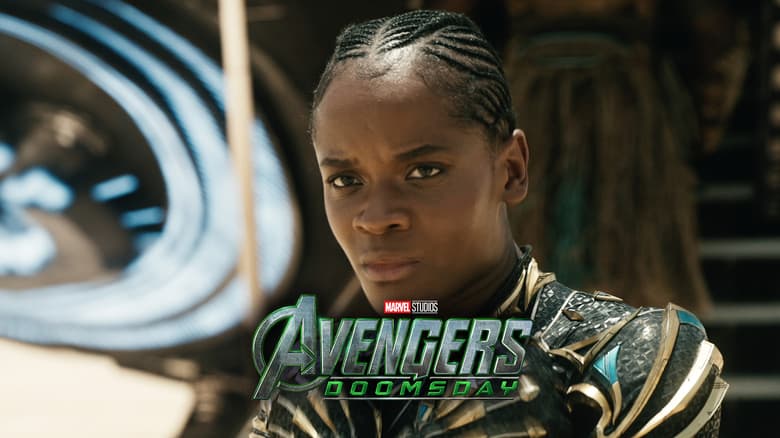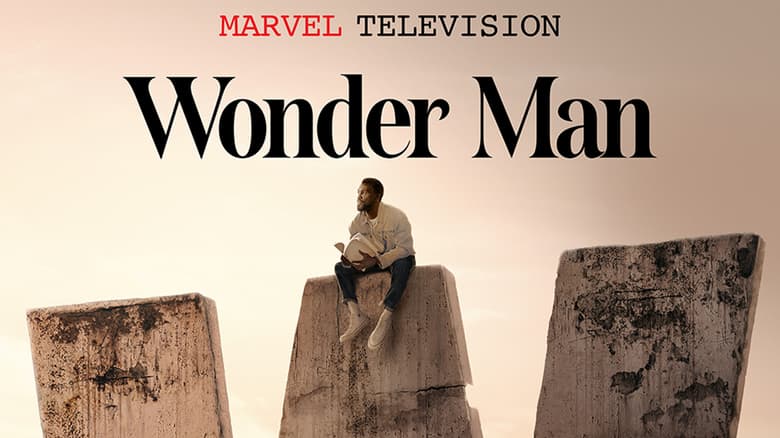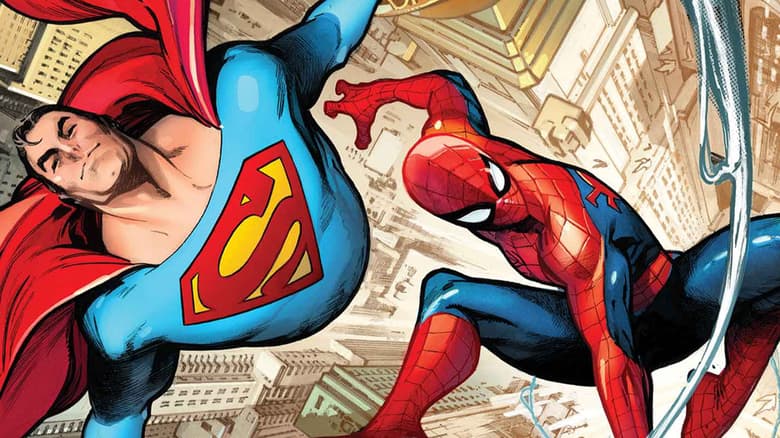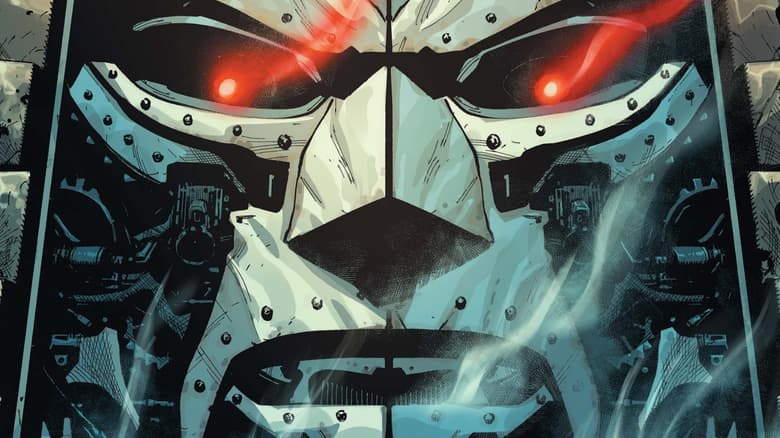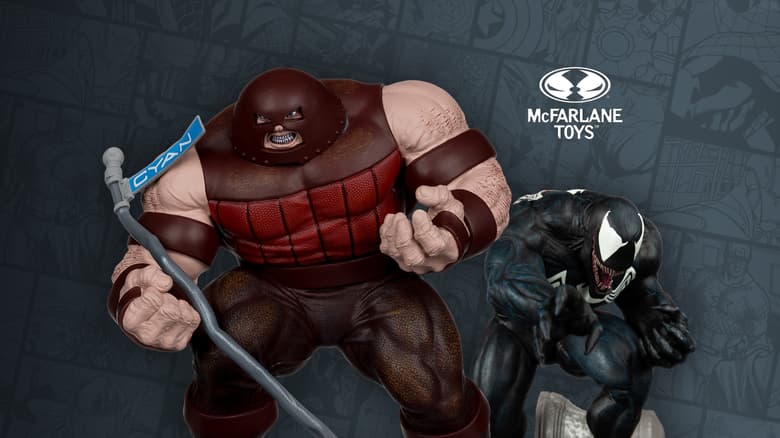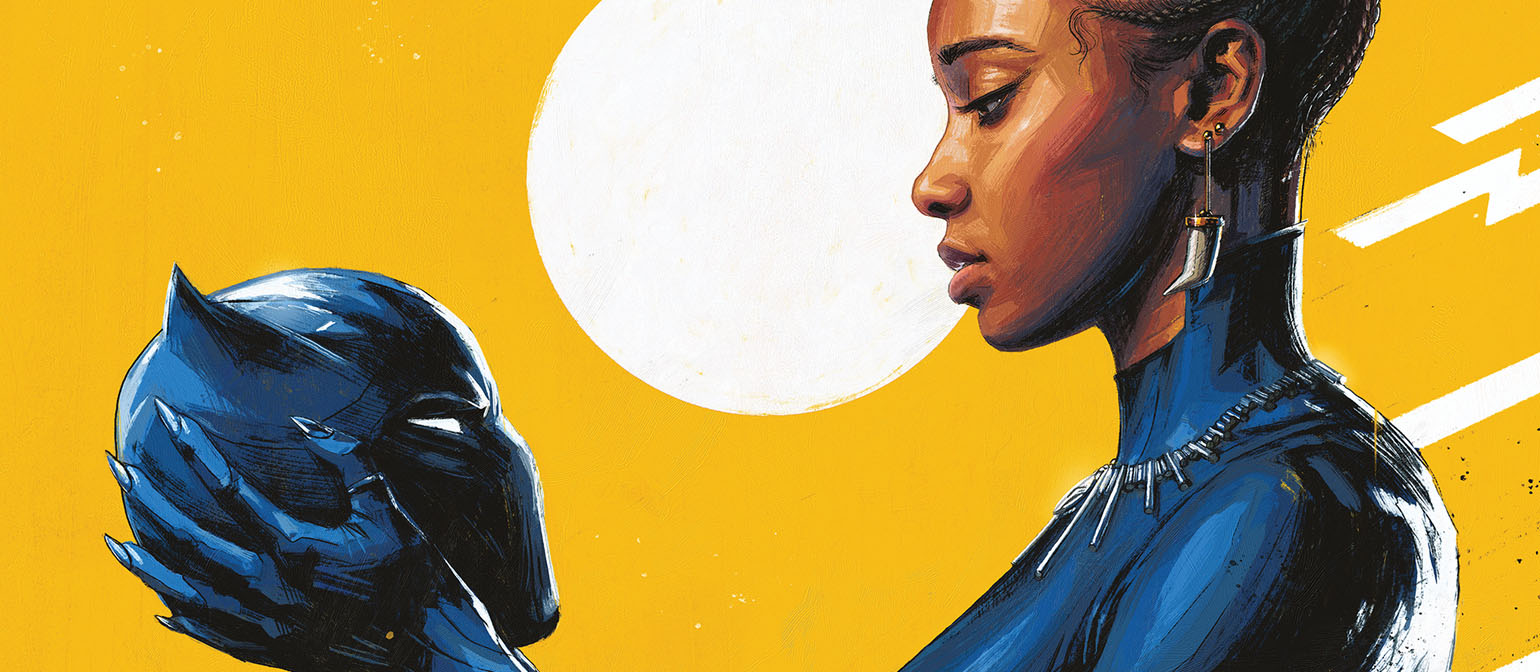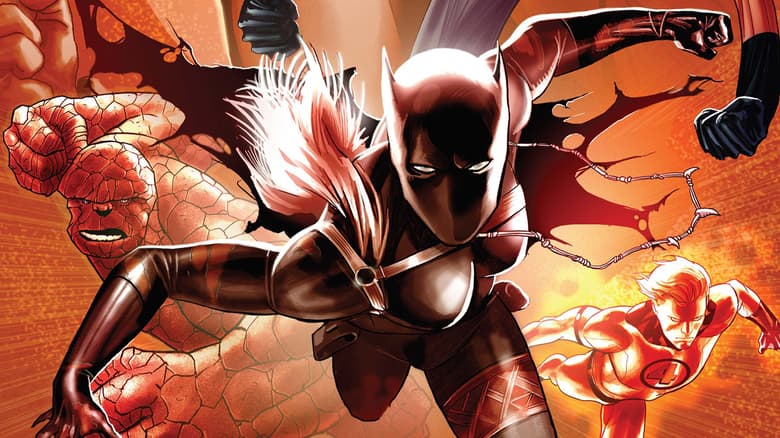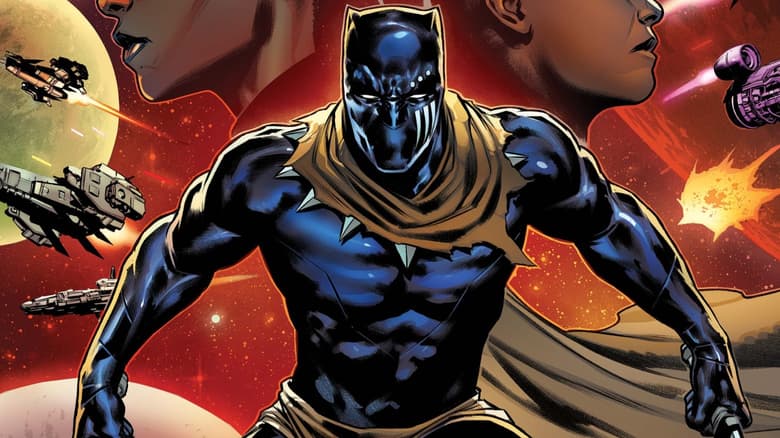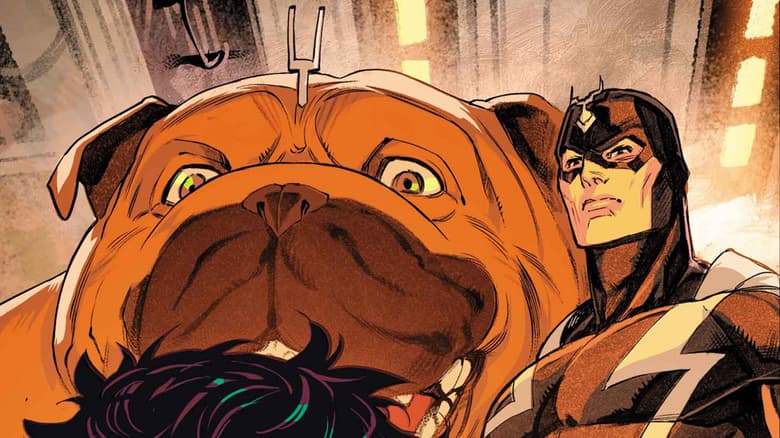Read Shuri’s Full 'Women of Marvel' Podcast Episode
Scientist. Black Panther. Monarch. In this episode of the ‘Women of Marvel’ podcast, we cover Shuri’s inspirational Marvel history.
FULL EPISODE TRANSCRIPT:
NIC STONE: The number of people I had to consult in order to write this one character, like she has to be the smartest person maybe in the Multiverse.
DAISY LIGHTFOOT: Even in the midst of battle she will ask questions and not be afraid to get the answer.
SIBRINA COLLINS: What we'll probably see, maybe years from now, is the impact of the character Shuri on a student deciding “maybe science is for me.”
PREETI CHHIBBER: Welcome to Women of Marvel, I'm Preeti Chhibber, author and internet sensation.
ELLIE PYLE: And I'm Ellie Pyle, Marvel's executive director of digital content and editor in the Spider office and barely on the internet.
[LAUGHTER]
PREETI CHHIBBER: Today we are here to talk about a very special princess: Princess Shuri of Wakanda has a pretty impressive resume! Her older brother T'Challa, the Black Panther, has benefited from so many of her incredible inventions but she's also been the Black Panther herself.
ELLIE PYLE: Between the comics and the movie iterations of this character, she's mastered nuclear physics, nanotechnology and even synthesized a heart-shaped herb, the plant that gives the Black Panther their powers.
PREETI CHHIBBER: With a passion for protecting the people of Wakanda, Shuri is a bona fide genius. So what are our top reasons for why we love Shuri?
ELLIE PYLE: Well, first off she's super smart and that's a lot of what we're going to talk about today.
PREETI CHHIBBER: She's also emotional, and I know sometimes people can use that word in the sort of negative connotation, but it's really not. Shuri is passionate and she's very quick to take initiative.
ELLIE PYLE: Shuri and T'Challa have the most relatable sibling energy.
PREETI CHHIBBER: Yep!
ELLIE PYLE: Whether that's in films or comics or other expressions that we've seen through the years.
PREETI CHHIBBER: Yeah, got to say, as a younger sister with an older brother, I feel that real hard. Number four, she knows how to step up as a leader in her own right and she's a wonderful mentor. She understands wanting to, like, pass her knowledge on and making sure that the elevator is always going back down for other people who want to achieve the things that she's achieved.
ELLIE PYLE: And she understands the importance of maintaining the culture of Wakanda, its history and traditions, and how important it is not just to keep those things alive but to let them grow.
PREETI CHHIBBER: Shuri's first solo series in Marvel Comics was written in 2018 by Nnedi Okorafor with a couple issues by Vita Ayala. From the start, Shuri was already one of the smartest people in the Marvel Universe.
[BRIGHT MUSIC]
NNEDI OKORAFOR: My name is Nnedi Okorafor. I am a writer of African futurism and African Jujuism and the 2018 Shuri Series.
ELLIE PYLE: Can you walk us through her 10-issue journey?
NNEDI OKORAFOR: Yeah, it's complicated because at that time we had Black Panther the movie and then we had the comics, like a whole history of comics. So that's where Shuri was at the very beginning. She was very complex, so she had many different angles. So at the beginning my job was to bring both of those together, like both of those various storylines together.
That was one of the reasons why I was really happy to take on the project because I love challenges and also I'm a big character person. The Shuri in the comics and the Shuri in the film are very different. And the idea of bringing them together was a really interesting challenge.
An example of how they're different. Shuri in the comics has a lot of powers, a lot of really powerful powers. She's Ancient Future, so she knows the whole past, present and future of Wakanda. And she carries that in her mind, which makes her a very specific type of character. And she's also a shapeshifter, she can change into a flock of birds. She had impenetrable skin along with being a scientist and so bringing those together, while staying true to her character -- that was the challenge and that's what I found a really interesting project to embark upon.
ELLIE PYLE: So a big part of this version of Shuri was her being a scientific genius and--
NNEDI OKORAFOR: Yeah.
ELLIE PYLE: -- what was it like to have to write a scientific genius and to get into her head?
NNEDI OKORAFOR: It felt very natural to me. I'm a science fiction writer so the technology aspects were not a problem for me, it's not new territory for me. And it's also territory that I'm obsessed with already. For example in the Shuri Series there was one aspect to the story where she was dealing with black holes. If you know the deep dive that I did into black holes, where I was looking at physics, I was looking at mathematical equations.
Like, a lot of it didn't go directly into the comics but they definitely were part of what the story was grown from. So I did a huge deep dive into black holes and quantum physics just to write that part, and I enjoyed that. And since Shuri is obsessed with technology and she's very much a perfectionist and explores all the angles and then goes off on tangents and explores those things too, it felt right.
Like, the way that I did the research, the obsessions that I had, the knowledge that I picked up and then just the practice of doing that research, was part of her character development. So it all felt like familiar natural territory.
ELLIE PYLE: And what's your research process like? Is it just reading a variety of different sources? Do you talk to scientists? How do you go about digging into these different topics?
NNEDI OKORAFOR: The story is always first and foremost, the story leads the way. Even with comics, comics are far more structured than novel writing for me. Novel writing, I'm not a linear writer at all. Like I'll write inside out, backwards, forwards, all of that. But when I would come up with the summary for the story that process was still that non-linear kind of thing. So a lot of times the obsession with researching something came before I even knew what the plot was.
Like black holes were already a thing for me, they were already something that I was obsessing over. So the character would nourish the research, which would nourish the story, all of those would nourish each other at the same time. So once they're all like vibing together, for the research part of it, then I would read books. And I'm a professor of practice at Arizona State University, so therefore I have access to a lot of deep university research databases, so I would always go to those.
And some of those are written like in a foreign language, but I know how to decipher these things. So a lot of the research would be in that area. And then sometimes I would talk to scientist friends that I have because I have a nice little circle of people who I can talk to. I have some friends at NASA who I can ask questions any time. And sometimes what they'd say would lead me to something else and then it would be just all over again just kind of bouncing around in that non-linear way of learning.
So there's that. And then there's also -- I also like to get as close to my research as possible. So like if I'm writing about black holes, of course I can't go into a black hole, or I don't want to go into a black hole, or, you’d probably never see me again --
[LAUGHTER]
ELLIE PYLE: I mean you probably could, technically—
[LAUGHTER]
NNEDI OKORAFOR: Yeah, but I wouldn't come out! So there's that but like, I like to get as close to the experience as possible. So with that, I would go to a place for example, like here I'm in Phoenix, I would go to a place where it's really dark in the desert where you could see the Milky Way. So I would just get as close to the subject as possible, so that's part of the way that I generally do the research. So it's not just reading books, I like the tactical, experiential aspects of it as well.
ELLIE PYLE: And was science something you always had an interest in? How did you come to be a science fiction writer?
NNEDI OKORAFOR: Yeah, I was interested in the scientific stuff before I was even a writer, before I even knew that I would write stories. I started writing when I was 20, and before that I was definitely more into the sciences. I didn't do so well in literature in English class, ironically! Math and the sciences were my strong areas and my strong areas of interest.
Before I discovered storytelling I wanted to be an entomologist, which is the study of bugs and insects, I love insects. I was known as the “Bug Girl.” I would just go out into the bushes and catch things and classify them and research. So that's always been a part of me.
So once I started storytelling, once I started writing fiction, that stuff doesn't leave you it's always there. So it manifests itself in a different way in my stories. So that loving of research and learning and consuming scientific information, it's never left me.
ELLIE PYLE: So where can people find you on social media if you want to be found?
NNEDI OKORAFOR: Yeah, I'm out there, I'm out there. I'm on Facebook by my name Nnedi Okorafor, you can find me there in various capacities. And then also I'm on Instagram, which is just my full name together. So @nnediokorafor. And then my website is nnedi.com. N-N-E-D-I.com. So I'm pretty easy to find.
ELLIE PYLE: Thank you so much for coming on Women of Marvel today, and we'd love to have you back anytime!
NNEDI OKORAFOR: Yeah, my pleasure. Thanks for having me.
[BRIGHT MUSIC]
PREETI CHHIBBER: I love when a writer lets a hyperfixation take them through the narrative like Nnedi did her black hole excitement, because we can see that joy and sort of obsession on the page as readers, and it's really fun.
ELLIE PYLE: Absolutely, absolutely, and particularly for comics writers who are obsessed with like weird science facts--
PREETI CHHIBBER: Yeah.
ELLIE PYLE: And then they figure out whether the characters are scientists or whether the characters have science-based powers, these super interesting ways to then kind of weave that into the story, love it. So another person with a passion for science and weaving it into her stories is author Nic Stone, who also knows a lot about Shuri.
She's written three young adult novels about Shuri for Marvel and Scholastic – Shuri: A Black Panther Novel, The Vanished and Symbiosis. These books explore Shuri's teenage years in Wakanda, and the way she wields her scientific knowledge like a super-power. She's also hosted a podcast for Marvel last year called The History of Marvel Comics: Black Panther. So, when it comes to Wakanda, she really knows her stuff.
[BRIGHT MUSIC]
PREETI CHHIBBER: Where is Shuri at the beginning of this trilogy?
NIC STONE: She's a kid, man. My favorite thing about writing this trilogy was kind of getting to add to the canon, right? So when we first meet Shuri in the comics, she's probably like 18 or 19. When we first meet her in the comics, she is looking to challenge the standing Black Panther and overtake that role, but somebody beats her to it. That someone's name is T'Challa. And anyway she's older. So the books that I write -- she is 13.
She starts out as this 13-year-old kid, her mother is very keen on her doing more “princessy” things and fewer combat-ish “sciencey” things. And she really is working to prove that what she is into is valuable to her beloved, beautiful mother. And I had a blast writing her at that age because when I was 12, 13 my favorite books to read were like hard core adult science fiction.
Was a huge Michael Crichton fan, loved the scientific concepts in Jurassic Park, in Sphere, in The Lost Worlds. And so I really enjoyed getting to write this girl who's a lot like I was when I was her age . . . says the old lady.
PREETI CHHIBBER: No! [OTHERS LAUGH] Whatever!
[LAUGHTER]
ELLIE PYLE: What kind of journey do you take her on over the course of the trilogy?
NIC STONE: Books that I write, especially ones that are about young people, have to be about something. Like there's usually something in the world that I find frustrating, or something that I want to learn more about. So in order to learn more about it I will write a book. So in the first one it's like a climate change allegory. So the heart-shaped herb is dying and she has to figure out why.
So she's on a mission to make T'Challa a new Panther habit, like a new stretchy suit basically. And in the process of trying to create this new habit she discovers that the heart-shaped herb is dying and she's got to figure out how to stop it. Her adventures frequently take her beyond the borders of Wakanda. She takes a trip to Kenya in this book and she enlists the assistance of another super-huge deal dream of a Marvel heroine, who I won't name because I want you all to read.
But like I said she's trying to prove her mettle, right? And I think as a young person who is an inventor, who is just wicked smart -- the number of people I had to consult in order to write this one character, like she has to be the smartest girl or the smartest person . . . maybe in the Multiverse. I mean like, Moon Girl might give her a run for her money but like there's just something about Shuri and the work that I had to do to write her that suggests that she's way smarter than all of us.
PREETI CHHIBBER: One of the things I regret sometimes is making a scientist the bad guy in the Spider-Man Trilogy, because I was like, “that's so many YouTube videos I have to watch that I don't understand!” So I am so curious about how you approach science in these books? Like do you talk to scientists? What kind of research do you do? What does that look like?
NIC STONE: Yeah, I don't understand the YouTube videos either, so I absolutely do go to actual scientists, right? Like I remember, my favorite consultation was for the second book in the trilogy. And basically what I did was I reached out to a friend of mine who is like a cybersecurity guru and we were talking about the concept of a hack back. And so like I learned all of these things about hacking that-- because Shuri is not only a scientist.
So not only was I like reaching out to the head of the physics department at the local university to talk about electromagnetism, I'm also trying to learn about computers. It was really fun and exciting. And so now I can pretend to be really, really smart because I have these small tidbits of information that I know a whole lot about.
[LAUGHTER]
ELLIE PYLE: So the podcast that you hosted, The History of Marvel Comics: Black Panther, focused on her brother, but was there anything you learned about Shuri while working on it?
NIC STONE: Oh, that's a really good question. I think something that a lot of people don't realize is just how new Shuri is. If she was born when she was created she'd barely be in like middle school right now. It's a very interesting thing to me when I think about the creation of characters and how we create characters who have supposedly already lived a certain number of years of life and you look back and it's like, “Oh well, this character kind of burst out of the void at age 17 two years ago.”
The time is a trippy thing to me. But yeah, it was a lot of fun talking to Reginald Hudlin about Shuri and about-- there was actually even a third sibling in one of these iterations of Black Panther that nobody remembers was there. But like there's this two page spread where it's talking about when Klaw takes T'Chaka out, and the whole family is there and they were actually three siblings in this sketch.
It's one of those things where it's just like that comic thing where like, “Oh, it just disappeared, it's fine. No big deal.”
ELLIE PYLE: Until someone needs it to reappear.
PREETI CHHIBBER: Yes.
NIC STONE: Right! Right. So I do remember when I was working on the first book I remember writing about this additional brother that was in that one issue of the comics. There was this whole back and forth about whether or not I should include this additional brother.
PREETI CHHIBBER: This has been delightful. Is there anything that you'd like to promote that you're working on?
NIC STONE: So I released a contemporary young adult novel called Chaos Theory. That one's about mental health, like teen mental health and falling in love while living with a psychiatric disorder. And then how to be a young anti-racist. I adapted Ibram X. Kendi's bestselling memoir How to Be an Anti-racist, and that came out in January. I'm @nicstone on Instagram. That's the best place to look.
I'm @N-I-C-S-T-O-N-E on the ‘gram. And then I'm at nicstone.info-- Do people even like use websites anymore?
[BRIGHT MUSIC]
ELLIE PYLE: So it's always so much fun when the science is real in these stories and the way that they can kind of weave it into the fictional world and do so much in the hands of a fictional character.
PREETI CHHIBBER: It is, it's really neat I'm jealous of Nic because I feel like whenever I try to thread real science into anything I'm writing I'm like, “I don't understand what I'm saying!”
ELLIE PYLE: You don't have to understand it, it just has to sound real--
PREETI CHHIBBER: Yeah [LAUGHS]
ELLIE PYLE: But at the same time what a great rabbit hole for somebody to go down if they're like, “Wait, can that really do that?” And, yes it can--
PREETI CHHIBBER: So many YouTube videos it's so-- just pick a random science topic one day and like plug it into YouTube and listen to some 45-minute lecture from a professor you've never heard of. They care about it so much. It's so fun. So Shuri's smarts span so many different forms of Marvel storytelling. From comics like Nnedi's, prose novels like Nic's, the MCU, Marvel games and animated series like Marvel's Avengers and Marvel Rising.
In those last two, Shuri is played by actor Daisy Lightfoot.
DAISY LIGHTFOOT: I am Daisy Lightfoot. I voiced Shuri in Marvel Avengers Assemble: Black Panther's Quest and a whole bunch of Marvel video games and the LEGO Marvel Series. I am a voice actor, producer, a director, all that fun stuff. I'm really excited to be here.
ELLIE PYLE: So what went through your head when you were first cast as Shuri?
DAISY LIGHTFOOT: First thing that went through my head was, “Where are the tissues?” The tears were flowing for sure. This was my first series and it was for Marvel no less so it's like 1) Where’re the tissues? 2) Don't mess this up.
ELLIE PYLE: So were you familiar with Shuri before you were cast in these series?
DAISY LIGHTFOOT: I was, I had some knowledge of the comics and things like that. But it wasn't anywhere near as in-depth as the prep that I had to do for the show.
PREETI CHHIBBER: So tell us about that prep, what kind of research did you do?
DAISY LIGHTFOOT: So I did some research just about the comics and I found what I could but I also -- with my knowledge of science -- I'm an arts girly, so going into it, I was like, “OK, I have to drop everything that I know and get into STEM. In the next two weeks.” But it was something where I had to try to get into a comfortable space pronouncing science terminology. Even if I didn't know what the heck something was, I tried to pronounce it just so that when I started to pronounce things quickly while Shuri was speaking-- you know, she's talking about these high-level tech things in the midst of battle a lot of times.
And it just has to roll off the tongue, and it can't sound crazy so trying to pronounce things that I'm unfamiliar with, learning what I could about mechanics and things like that so if she did drop some of that I was ready for it. But it's also an interesting space because she's created this technological world of her own. And so how do you really prepare for something like that?
You get what you can from the people that wrote it, and you got to trust your instincts from there. So that's a lot of what that was.
ELLIE PYLE: Yeah, that fun mixture of real science and Marvel science.
DAISY LIGHTFOOT: Exactly.
ELLIE PYLE: Was it intimidating to play one of the smartest people in the Multiverse?
DAISY LIGHTFOOT: You know a little, a little. [LAUGHS] But the way that I was raised is, if something is brought in front of you, you can prepare for it. There's nothing that you can't handle. So it's just a matter of preparing for it the best that I could. It wasn't a question of if I was capable, but I had some nerves.
ELLIE PYLE: And yet you managed to keep Shuri, as smart as she is, so grounded and relatable. What about her did you connect with?
DAISY LIGHTFOOT: I think the thing that connected me to Shuri was the thing that I learned about her. Because I was connected in that what we all love about her, she's bold, and she's fierce, and she's resilient, and all of these amazing things. But I think what really connected me to her was the fact that she showed humanity and the love that she had for her people and her family.
And yes, there's this whole world that relies on her but she's still a teenager, and she's going through a multitude of things. I just learned so much about having humanity within your daily fight that you might have. Throughout your responsibilities just keeping grounded and being levelheaded.
ELLIE PYLE: So you've played her in several different contexts. Has your understanding of her as a character evolved at all through the different projects?
DAISY LIGHTFOOT: 100%. My experience of her in the beginning was just she was this warrior and she's very headstrong and, you know, she can't be told anything. And while part of that is true, I think it's also important to note that she evolves as she's learning, and so she's not someone who can't be taught. And so my understanding at first was that she was just completely in her own space or sphere as far as what she knows.
But my understanding has evolved in the fact that she can grow in what she knows. She learns as she goes. Even in the midst of battle she will ask questions and not be afraid to get the answer and shift some things around if she needs to. But yeah, the humanity within her, the softer side of her is something we don't often get to see, and I got to play that a few times.
And I think it's so beautiful when we see someone so strong be able to have some humility about themselves and ask questions. And so yeah, seeing the softer side of her was something that really changed my outlook on who she is, she's a human just like everybody else.
ELLIE PYLE: And where should they look for you on social media if you want to be found?
DAISY LIGHTFOOT: My Instagram is @daisymlightfoot, and I am on the Clock app as well. I believe it's also @daisymlightfoot.
ELLIE PYLE: Thank you so much for coming to talk to us today.
DAISY LIGHTFOOT: Thanks so much for having me. This was a blast.
[BRIGHT MUSIC]
ELLIE PYLE: Like Daisy, Letitia Wright found it meaningful to play a scientific genius. Our pal Nic Stone got to talk to her on the Red Carpet for Marvel Studios' Black Panther Wakanda Forever.
NIC STONE: What is it like being a female genius and like the greatest warrior in the world?
LETITIA WRIGHT: Oh man, being a female genius firstly for me, it's really cool. It's really cool man, to see Black women be celebrated in this way, to see Black women--
NIC STONE: Yes!
LETITIA WRIGHT: Be championed is incredible.
NIC STONE: Yes.
REPORTER: Thank you. Thank you all. Thank you both.
NIC STONE: Epic.
PREETI CHHIBBER: It's one thing to play a fictional scientific genius, but Shuri's stories are rooted in real-world science. For all her intergalactic travel and astral projection Shuri isn't that much different than real life scientists studying the wonders of our universe.
ELLIE PYLE: Like Sibrina Collins, a chemist and educator whose love of Shuri inspired her to bring Marvel into the classroom. Our Ask an Expert correspondent Isabel got to talk to her.
ISABEL ROBERTSON: Hi Sibrina, welcome to Women of Marvel.
SIBRINA COLLINS: Thank you, I'm so honored to be here.
ISABEL ROBERTSON: We're so excited to have you. Could you please start off by just introducing yourself to our listeners and telling us what you do?
SIBRINA COLLINS: Sure, so I am a chemist, a very proud chemist, from Detroit, and I am currently a professor at Lawrence Technological University and one of the things I do is use Marvel Studios' films to engage young people in chemistry. So that's kind of what I do.
ISABEL ROBERTSON: What is the first time you remember first being aware of Black Panther and Wakanda and that whole world?
SIBRINA COLLINS: Oh, that's a great question. And I can tell you I first became aware of Black Panther and Wakanda in 2018, when the first film was released. I didn't read comic books as a kid, you know, so I became aware, and there was a lot of buzz about this new film. Because I really wasn't planning to see the film. You know I was like, “OK, what's really the big deal?” And my sister encouraged me to go see it. She said, “You really got to see this film.”
So I go to the movies in February of 2018, late February, with two of my cousins and I'm enjoying the film. And it occurs to me that Wakanda is thriving on the production and use of this so-called element called vibranium, and because I'm a chemist and I can't shut off my chemistry brain I kept asking myself, “OK, if this element were real where would it be in a periodic table?”
And that's what chemists do. We come up with these questions that we think are so interesting and needs a solution. So I was so excited after leaving the theater, I went home that night and I started writing out an outline of a new paper drawing that-- where you can use the film to teach young people about the periodic table, which I think is the coolest thing ever.
And so I sent an email to my colleague Professor LaVetta Appleby, and I said, “Hey, have you seen this film? And can you ask this as a bonus question on your next general chemistry exam?” And she did, and we found out immediately who the Marvel comic fans were in the Department, used some of their responses for the paper, submitted it for publication to the Journal of Chemical Education in March of 2018. And it was accepted and published in June of that year.
And that's kind of how we got into this Super Hero science research and you just don't know when and where inspiration will show up because I did not plan to go into theater and get inspired to write about the periodic table. I just saw this connection and Professor Appleby shared with me, in all of her 20 years of teaching, students have never been excited to learn about the periodic table the way they were with this one question. I would have been thrilled to get a fun question like this.
ISABEL ROBERTSON: Oh yeah.
SIBRINA COLLINS: And since the paper had been published, we were interviewed by a journalist from Scholastic Science World, which is a magazine that's read by over a million kids talking about science concepts. And so they created this lesson plan aligned with the Next Generation Science Standards for students to classify vibranium, so we've used those materials to create workshops for middle school students and high school students where they work in teams to create a poster for a gallery walk.
And they think they're trying to figure out where this fictional element will be, they present that but what they're really doing is learning about the organization of the periodic table. And it is so fun and the students' responses are just so amazing. They are really into these Marvel films.
ISABEL ROBERTSON: What a great way to learn. I think I would have learned so much more about-- like understood chemistry more deeply rather than just memorizing what I was supposed to know--
SIBRINA COLLINS: Right, yeah-
ISABEL ROBERTSON: -- if I had had this kind of connection to it. So, where would vibranium fit on the periodic table and how do you figure that out?
SIBRINA COLLINS: The periodic table -- elements are arranged based on something called an atomic number, which is the number of protons in the nucleus of an atom. And it's the periodic table so it's arranged in various areas. So you have the middle of the periodic table where a lot of transition metals are, and the bottom of the periodic table where you have some other metals that are very reactive.
And so basically, I think, that vibranium would fit in the middle of the periodic table where these metals are. But the beautiful thing about it: there is no right or wrong answer, you know, and so that's why I think the students have so much fun with this. This is not yes or no, this is really about them drawing on their creativity and their understanding of the periodic table, because the bottom of the periodic table has a lot of radioactive elements you know.
And some students make the argument, “Well, it belongs there because it has this purplish color in the film so it could be radioactive.” And that's a great argument to make. So you can make any argument. And I think that's why students love it so much because it's not yes or no.
ISABEL ROBERTSON: Yeah, Marvel Studios' Black Panther Wakanda Forever came out late last year, what can that movie in particular help teach students? Is there anything? Like what can you draw from that one the way that you drew vibranium from the first film?
SIBRINA COLLINS: You know I absolutely loved Wakanda Forever. I was inspired again so we ended up publishing a new paper. And so there are so many science and technology concepts in there which I absolutely loved. And so with that particular paper there are a couple of things that stood out to me.
For one, what we did this time we kind of flipped the script a little bit compared to that very first paper in 2018. Because in 2018, we asked the students where did they think vibranium would fit in the periodic table. For this new paper, we basically told them, “What if vibranium were element 125 on the periodic table?” You know and keeping in mind that there are only 118 known elements on the periodic table. So it's really about them predicting what the properties would be of that fictional element, so element 125.
But the other point about the new Wakanda film is learning from failed experiments because if you recall in the film -- and spoiler alert for those that have not seen the film, and you should -- is that Shuri was trying desperately to synthesize a synthetic version of the vibranium herb to save her beloved brother, and she failed. And it wasn't until she kept trying and eventually she did get it, that's exactly what happens in science, right?
So most of the experiments that we do don't work, but some of them do. And so the key is learning from what you did previously, making some changes or modifications, and then you'll get a result. That's exactly what happens in science and so all students, I don't think it's just science students, so every student needs to be able to learn from failure regardless of what your major is, and how do you pick yourself up and keep going?
So Shuri was devastated, but she kept trying and eventually she got it and it was very beneficial for Wakanda. And so we had to really get young people to embrace that and that's hard, it's hard, but that's a really important life lesson. You have to keep trying, you can't give up so easily.
ISABEL ROBERTSON: Yeah, I love that being the lesson that you pulled though because I think that's such that's such an important lesson for everyone, but especially students. And it's something that's hard to learn in a school environment where you're being graded on things and you want to succeed and you don't want to fail.
Do you see -- Shuri's enhanced leadership and her prominence in Wakanda -- have you seen young people sort of inspired by that? Have you seen that affecting their learning or their attitudes? Is there anything that they're sort of taking away from that?
SIBRINA COLLINS: I can tell you when I do these Black Panther workshops with young people, I always begin by showing a movie clip of the film and I ask the students who was their favorite character in the film and why. And usually just about every young person says Shuri.
ISABEL ROBERTSON: Oh amazing.
SIBRINA COLLINS: What I'm hoping what we'll probably see maybe years from now, is the impact of the character Shuri on a student deciding, “maybe science is for me, and science is for me because of -- I saw this character in that film,” it's possible. And the thing is one of the points that we make at the end of that first Black Panther paper, is that her character is a shining example of what's possible when everybody has an opportunity.
Here you have this young woman who is leading all of these technological advances for this fictional African nation -- that is inspiring. You know so I really think that character is important because a lot of young people connected with her. And in fact though, at the end of the first Black Panther film, one of the scenes that really resonated with me was when she was kind of mentoring some younger students and explaining the technology of one of--
ISABEL ROBERTSON: Yeah!
SIBRINA COLLINS: -- of the vehicles, that right there was powerful because that's what it's all about. It's mentoring and getting students to do some hands-on types of activities and that's what she was doing. She was talking with them about the technology of that vehicle, and I loved it.
ISABEL ROBERTSON: Well, I think that is the perfect note to end on. Thank you so much for joining us Sibrina.
SIBRINA COLLINS: Thank you for having me and I appreciate it.
[BRIGHT MUSIC]
PREETI CHHIBBER: I love this so much. Like Shuri doesn't just inspire people inside of the comics, we get to see her character having a real-world impact and kids getting excited in the classroom about science. And like, who knows because of that inspiration and because of that excitement what some of these kids might end up going on to do.
ELLIE PYLE: Hey, I'm ready for real vibranium, for them to figure it out, get that solved. But in the meantime while we wait where should you go if you can't get enough Shuri? Robyn Belt, manager of editorial content for Marvel Unlimited is back to tell us.
[BRIGHT MUSIC]
ROBYN BELT: Hello, hello! I am here with some Shuri picks for new readers and those looking to get into the character. So we're going to start off our list with Shuri's first time in the Black Panther suit. That is in Black Panther issue 4 and 5 from the 2009 run. And very interesting, this is an initiation and rite of passage for Shuri.
But her very first trial with the Panther God Bast, who is the Wakandan deity of the Black Panther mantle rejects her and says, “You're not worthy.” Shuri doesn't care, she goes back into the suit, she does what needs doing and she becomes a very different kind of Black Panther than T'Challa, her brother. She's more hotheaded, she's more reactive, she's not afraid to get the job done.
Which takes us to Doom War, a limited series from 2010 starring Doctor Doom. Shuri here is a general commander, she is a diplomat. I absolutely love seeing her take charge of the Wakandan army. And in a great power move with Doom she tells him to his face, “Wakanda doesn't start wars, we end them.” Read it, you'll love it. A lot of guest stars, cool cameos, this is one of my favorites on the list.
ELLIE PYLE: I love these quotes that you pulled, this is amazing.
ROBYN BELT: Thank you very much. Which takes us to our next issue: this is Black Panther issue 8 from the 2016 run. This issue is by Ta-Nehisi Coates and penciled by Chris Sprouse. I love this issue because it's a different dimension to Shuri's power. After her exile in a plane called the Djalia, which is the spiritual home of Wakanda's collective memory, Shuri emerges with these all-new mystical powers as the keeper of Wakandan Lore, and she starts her journey as Wakanda's Aja-Adanna.
And we follow that up with Shuri issue 1 from 2018, and I love this. This is a great entry point run from writer Nnedi Okorafor, it's penciled by Leonardo Romero, and colored by Jordie Bellaire. And this sees Shuri completely in her element. She's in the lab, her brother T'Challa goes off on a space mission, he is missing, no promise of return.
And everyone around her is asking the Princess of Wakanda to step up to the plate as the Black Panther once more, but Shuri's not too sure this time. She's moved on in her journey, she has her own priorities, but she's going to step up her own way to defend Wakanda's throne.
PREETI CHHIBBER: And we actually had Nnedi on earlier to talk about Shuri, so this is excellent.
ROBYN BELT: And our final issue on the list is Wakanda, this is a fairly recent run from 2022. It's an anthology style series by a host of great creators. And I love the Shuri standalone story by Stephanie Williams, Paco Medina is the penciller, Bryan Valenza is the colorist. And this deals with Shuri coming to grips with T'Challa in political exile, and more than ever she has to step up to defend Wakanda's throne.
And I also love this issue because we get a really nice glimpse into the Ramonda-Shuri mother-daughter bond. So we get to see Ramonda and Shuri, not as regents and monarchs, but just as mom and daughter. And there you have it folks, those are our Shuri picks! Ideal comic entry points that you can either read this list in chronological order, or start wherever you like, whatever sounds the most interesting to you.
ELLIE PYLE: Thank you so much Robyn, I can't wait to hear what we're going to be reading next week.
ROBYN BELT: Thank you guys, can't wait to share with you. Talk to you soon.
[BRIGHT MUSIC]
PREETI CHHIBBER: Next week on Women of Marvel, we are having a birthday party. The Wasp is turning the big 6-0, and we really hope you'll join to celebrate.
ELLIE PYLE: Until then, Women of Marvel is produced by Isabel Robertson, Zachary Goldberg, Ellie Pyle, and Preeti Chhibber.
PREETI CHHIBBER: Our senior manager of audio development is Brad Barton, production manager is Emily Godfrey, and our executive producer is Jill Du Boff.
ELLIE PYLE: Special Thanks to our comics correspondent Robyn Belt.
PREETI CHHIBBER: Listen weekly on Apple Podcasts or wherever you get your podcasts. I'm Preeti Chhibber.
ELLIE PYLE: I'm Ellie Pyle.
PREETI CHHIBBER: And this is Marvel.
ELLIE PYLE: Your universe.
[BRIGHT MUSIC]
The Daily Bugle
Can’t-miss news and updates from across the Marvel Universe!
